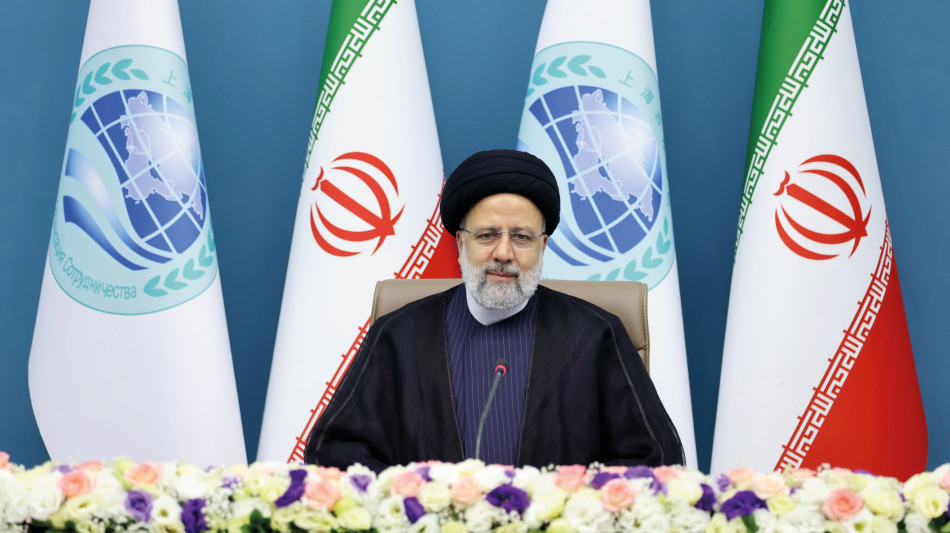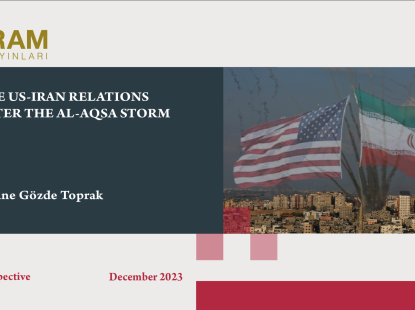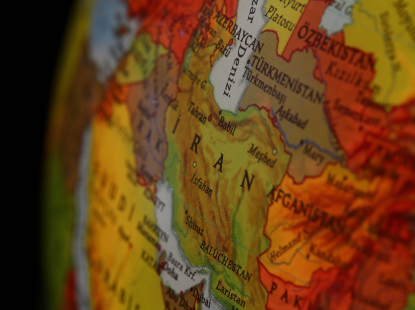China and Russia, the influential powers in the SCO, have abandoned their reservations in their relations with Iran in recent years and established a more comprehensive relationship.
The Meaning of Iran's Membership in the Shanghai Cooperation Organization
The Shanghai Cooperation Organization (SCO), which includes China, Russia, India, Pakistan, as well as Central Asian countries other than Turkmenistan, announced on July 4 at an online summit that Iran's membership in the organization is now approved. In fact, Iran's membership was announced at the 21st SCO Summit held in Dushanbe, the capital of Tajikistan, on September 16-17, 2021, after fifteen years of observer status. However, as seen in the membership of other countries, some technical procedures had to be fulfilled first for the full membership.
The Meaning of the Membership for Tehran
Although Iran has had significant problems with Western countries, particularly the USA, since the 1979 revolution, it has never wanted to completely break off relations while trying to repair them at every opportunity. Yet political relations have never reached an ideal level due to problems such as the Salman Rushdie fatwa, the Mykonos attack, the 9/11 events, or Iran's nuclear activities. Nevertheless, until recently, Tehran has always maintained close ties with Europe, especially in the economic sphere, and many German and French companies have carried out important projects in the country.
The global "East-West" antagonism began in March 2022 and became concrete with the Russia-Ukraine War that has been going on for more than a year. As the war transitions from a state of tension to full-blown conflict, it appears that the "East-West" antagonism holds the potential to become a pivotal moment in international relations, comparable to the end of the Cold War or the September 11 attacks. This global turmoil is not lost on Iran, a major player in West Asia, which has pursued an ambitious regional strategy since 1979. Tehran has been slowly but steadily developing its relations with Russia and China for a long time and has formulated these policies under the current Ebrahim Raisi government through the "Look to the East" narrative. In this scope, Iran is trying to interpret these developments carefully and take the best steps to ensure and expand its national interests. Tehran, which has not received the desired level of favorable response to its expectations from both Moscow and Beijing in the past, has recently taken its relations with the two countries to the next level. The twenty-five-year comprehensive cooperation agreement between Iran and China, the Saudi normalization mediated by China, and the rapid deepening of relations with Russia after the invasion of Ukraine, which never improved much before due to various factors, including the Israeli factor, are concrete indicators of this situation. In short, China and Russia, the decisive powers in the SCO, have removed their reservations in their relations with Iran in recent years and established more comprehensive relations. Indeed, Tajikistan's change of position after vetoing Iran's membership in the past, or the fact that intense US economic and financial sanctions no longer prevented Iran's SCO membership, coincided with the strain in China-Russia relations with the USA.
Is the Motivation Political or Economic?
Given Iran's strained relations with the West and the SCO's portrayal of itself as a counterbalance to Western global influence, the inclusion of a country known for its ideological anti-US stance in the organization will undoubtedly fuel the ongoing debate. Indeed, the news website affiliated with Iran's Supreme National Security Council emphasized that this step is a strategic win for Iran, arguing that the trio of Iran, China, and Russia constitute the most critical resistance bloc against NATO. Analyses published in Iran frequently underscore the political-military importance of membership, emphasizing the China-Russia alliance rather than focusing on India or Central Asian countries that are also part of the organization. The approval of Iran's accession by two countries that previously opposed it for various reasons, coupled with the ongoing conflict in Ukraine that has seen the deployment of advanced and even prohibited weaponry, as well as the escalating discussions regarding potential nuclear scenarios, are significant factors to consider. In addition to these factors, Ukraine's accusations of Iran providing Russia with kamikaze drones, potentially taking sides in the military conflict, imply that Tehran's membership and its efforts to foster relations with Beijing and Moscow in recent years are primarily driven by political and military considerations rather than purely economic, logistical, or energy-related motivations. The allegations regarding China and Serbia, as well as Tajikistan, procuring a substantial quantity of kamikaze drones from Iran, along with the establishment of joint Russian-Iranian drone facilities in Tatarstan, indicate the potential for an expanding scope of cooperation in this domain. As tensions between the US-led West and the Chinese-led Eastern bloc escalate, military cooperation between the three countries will not only be limited to drones, but the systems they provide to each other will also diversify and increase.
From an economic point of view, Iran, overwhelmed by Western sanctions, hopes to gain crucial benefits from the SCO, an expectation expressed in the country's press. However, from a realistic point of view, rather than being a regional community focused on trade and economy, the SCO's primary goal is to neutralize common threats to the national security and territorial integrity of member states from separatist and radical movements. The organization has garnered international prestige and attention primarily due to the inclusion of rising powers like China and India. The organization's status as an appealing alternative platform for dialogue remains intact, even in the presence of countries engaged in political and even military conflicts with one another. The expectation that the membership will have a significant positive impact on the Iranian economy does not seem very realistic, at least in the near future. Indeed, as Putin and Raisi stated at the last meeting, non-dollar trade between member states is not a goal to be realized in the short term. Although it has been on the agenda for years, the steps taken so far have been indeed limited. Considering the absence of a "free trade area" among member states, it would be unrealistic to expect an immediate realization of economic benefits.
In conclusion, it is an undeniable fact that Western countries do not welcome Iran's SCO membership. Iran's transformation from the relatively balanced policies of the Rouhani or Khatami governments into a military-political extension of the Eastern bloc in West Asia, thus breaking its international isolation and becoming one of the leading allies of a young but dynamic alliance, disturbs not only Israel and Europe but also the USA. Indeed, it is believed that Iran's military posture across various regions, including Ukraine, Syria, and Iraq, as well as the incidents of tanker seizures in the Persian Gulf, aligns with the strategic inclinations of the Beijing-Moscow alliance. These factors are often cited as key obstacles in reaching a prospective deal despite the substantial progress in the nuclear negotiations.











